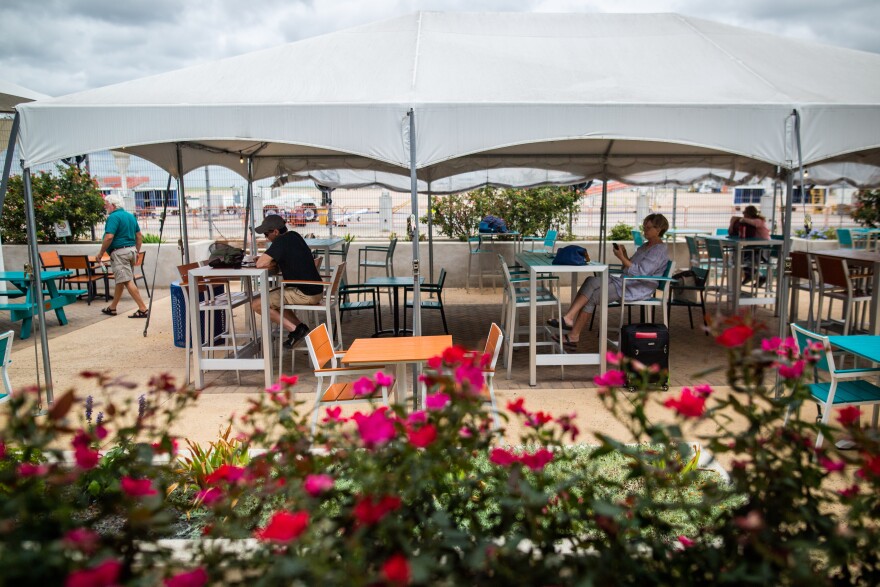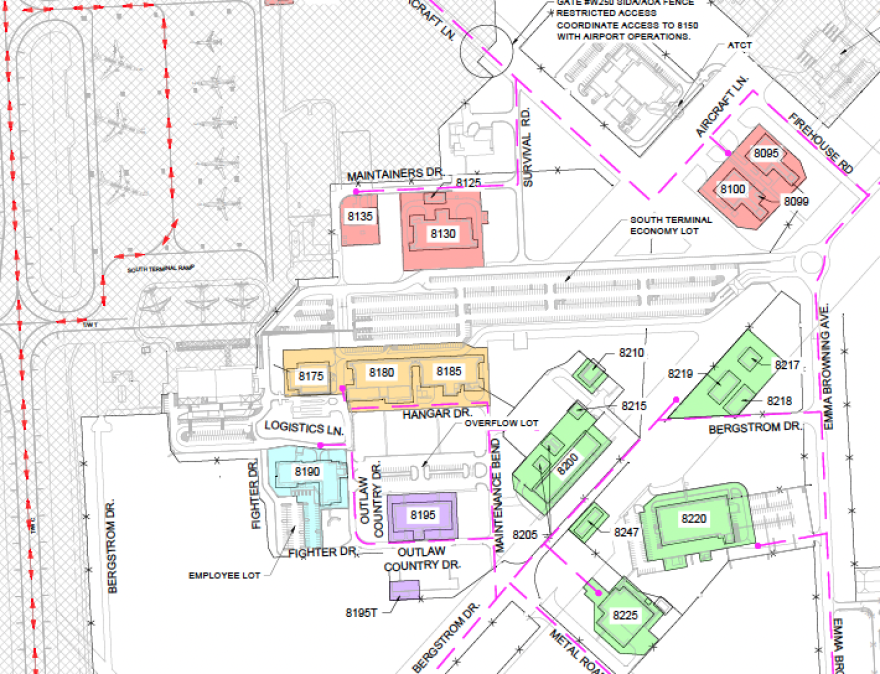The City of Austin should pay $90 million to evict the company running the South Terminal at Austin-Bergstrom International Airport, a panel of special commissioners ordered in Travis County Probate Court.
The amount awarded by the special commissioners — three landowners with no stake in the deal who were appointed by a judge — is 46 times what the city had originally offered Lonestar Airport Holdings.
"It's a pretty extraordinary result," said David Todd, an eminent domain attorney in Austin.

The South Terminal — where discount airlines Allegiant and Frontier operate — is a much smaller facility than the main Barbara Jordan Terminal at ABIA. The South Terminal has three gates, food trucks, and indoor and outdoor waiting areas.
Lonestar Airport Holdings was granted a minimum 30-year lease of the South Terminal in 2016. The deal allows for two optional five-year extensions. Lonestar claims to have invested almost $20 million since taking over the terminal.

Austin airport officials, with the blessing of the City Council, want to demolish the South Terminal to create space for a new concourse with at least 10 gates. The concourse would be connected to the Barbara Jordan Terminal by an underground pedestrian tunnel.

In a statement, the city didn't say whether it would pay the $90 million or object to the valuation. Either side can dispute the award in civil court.
The $90 million decision "furthers the airport's mission to deliver critical improvements and modernization projects needed to support increased passenger and airline activity," the airport said in a statement. ABIA said it would not make anyone available for an interview or answer further questions.

Lonestar Airport Holdings CEO Jeff Pearse said in a statement that he’s pleased with the $90 million award and wants to reach an “amicable” deal with the city to “avoid ongoing, costly and unnecessary litigation.”
Eminent domain attorney Luke Ellis, who also teaches at the University of Texas Law School, said the use of eminent domain by a government authority to terminate a contract is "very unusual."
"It's essentially akin to the city trying to condemn its way out of obligations and agreements. I think that's terrible," Ellis said. "If the city were to prevail here, I think it would discourage and dissuade future private businesses from partnering with the city."
The city is already moving to bulldoze every building around the South Terminal. Demolition companies were invited in December to bid on an estimated $6.5 million contract to destroy 39 buildings. Six companies have bid.

Meanwhile, a separate case is playing out in federal court.
Lonestar Airport Holdings sued the city, alleging a provision of its lease allows the company the exclusive first right to be involved in any airport expansion.
In federal court filings, Lonestar says it was willing to make a "significant up-front investment" in the South Terminal only because the length of the lease would give the company a chance to recoup its investment.
Attorneys for the city countered in federal court filings that Lonestar's lease allowed the company to be involved in the airport expansion only if the city agreed.
U.S. District Judge Robert Pitman last month denied Lonestar's request for a temporary halt to the airport expansion while the lawsuit proceeds.
Pitman ruled Lonestar would not suffer irreparable harm, because "monetary damages could remedy Lonestar's alleged injury."
Lonestar claimed in court filings it would prove the city directly cost the company hundreds of millions of dollars.
Correction: A previous version of this story incorrectly stated Lonestar claims to have invested almost $50 million in the South Terminal. The figure is nearly $20 million.











